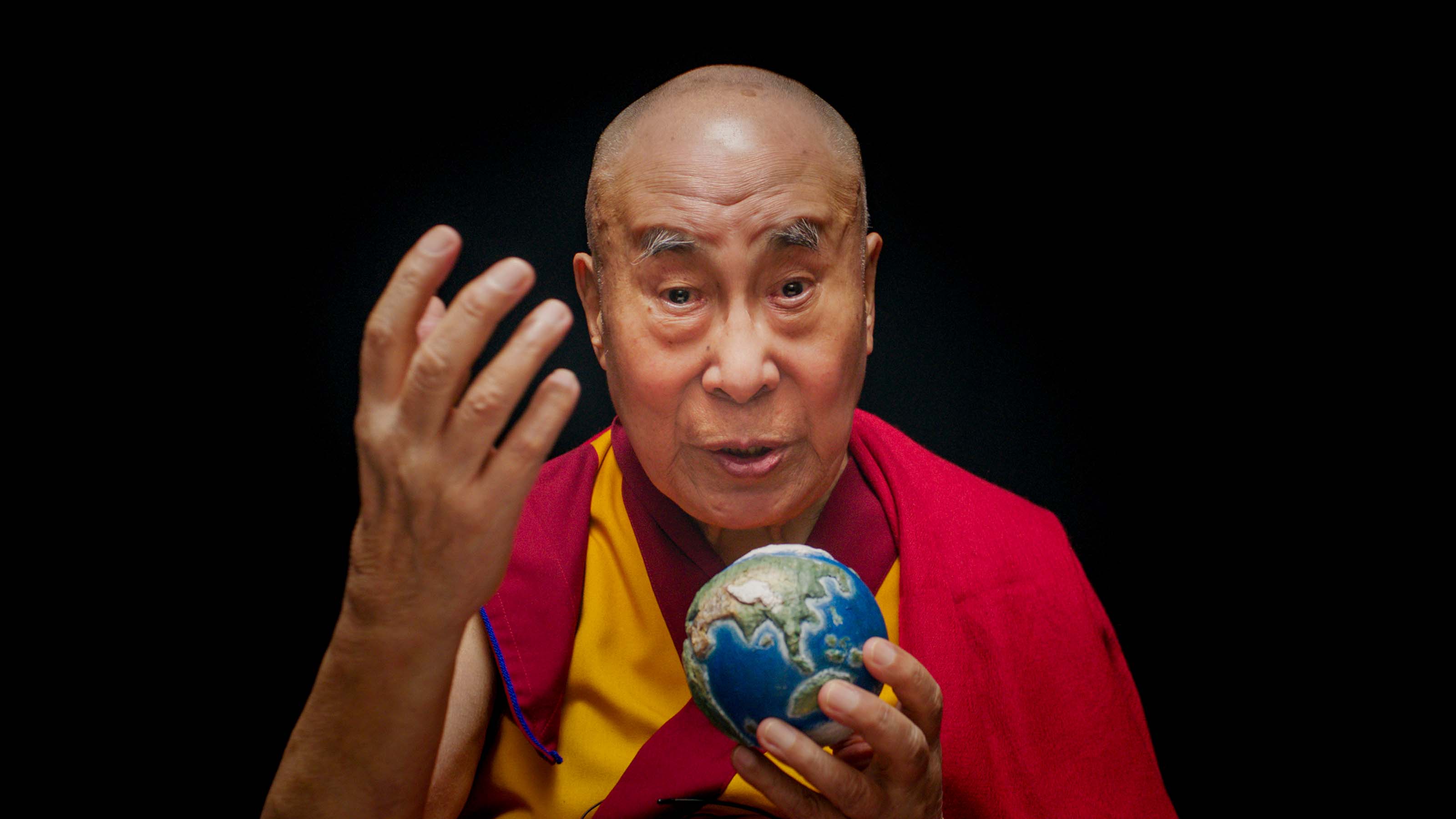“We are all the same human beings. Without any doubt, we all want peace, happiness. But the 21st century will not be an easy century. There is fear, anger, hate. That is why the world needs knowledge about our mind, about our emotions, about how to address those emotions.” Thus begins Wisdom and happiness (Wisdom of Happiness: a heart to heart with the Dalai Lama), A documentary that is presented on April 29 at the Barcelona International Film Festival – it opens a day later in theaters – and in which the political and religious leader, Nobel Peace Prize, reflects on how you can be happy in a world as turbulent as the current one, so full of distractions, so violent, so complex.
The Dalái Lama, Tensin Gyatso, 89, was proclaimed spiritual leader of Tibetan Buddhism when he was four, on February 22, 1940, as incarnation of the late Dalái Lama anterior. From that moment he began to prepare for his mission, and assumed political power as Head of Tibetan Government with 15 years. The documentary reviews with archiving images of his life, his childhood, his relationship with his father and, above all, with his mother, an illiterate peasant from which he tells that he learned everything he knows about love and compassion. And he also remembers his complicated role as a political leader, the Chinese invasion of Tibet, his excellent initial relationship with Mao Zedong – “considered him a father” -, the difficulties, his flight in 1959 – “I did not know if he would wake up alive the next day” – and his years as a political and religious leader in his exile in Dharamsala, India, defending the rights of the Tibetan people.
The Dalái Lama describes a life that has not been easy. And from his own experiences he goes to the camera sitting in a green armchair in a 90 -minute documentary to try to answer this question: how can happiness and mental peace be achieved despite the stress of daily life, of uncertainty about the climate crisis, of the anxiety produced by the wars we are living?
“We are all part of a community,” he says. “If you think more than you, anxiety, anger and fear increase. But the mind can control our brain and our emotions. And we need education to calm it down.” In a society in which the books and videos of self -help, antidepressants and benzodiazepines proliferate, Dalái Lama offers its own formula to achieve happiness and, above all, mental peace. “Negative emotions are very bad for our health,” he says. “Anger, hatred and fear affect our immune system. But we can reduce them and calm our mind.”
The documentary is directed by the Swiss Barbara Miller and Philip Delaquis. The American actor Richard Gere, who has maintained for decades a close relationship with the Dalái Lama, participates as an executive producer. “The initial idea of the documentary was to do something that, in these difficult times, can give hope to people and another vision of how to deal with emotions such as anger and frustration,” explains Barbara Miller in video call. “When I was little, my mother took me to see Dalái Lama. Beyond her religious side, she has always impressed me as a spiritual figure, like someone wise who conveys trust. And I wanted to listen to what we think about the time we live.”
The documentary preparations began in 2018, later joined the Manuel Bauer team, a private photographer of Dalái Lama during the last 35 years, interviewed the religious leader in 2019 in Dharamsala, and subsequently years have spent years editing the material and incorporating file images. “He was interested in the possibility of talking directly to the camera as if he were addressed to spectators in a private conversation,” Miller explains. “The documentary tries to be an immersive experience. We begin to breathe all with him and follow his reflections on the management of emotions and the 21st century complex. He speaks of things that may seem simple but that could change our lives. The message he conveys is that there is always hope. I think that is why the reception he has had in the countries in which he has already premiered has been very positive.”
The documentary is analyzing different issues such as the climatic crisis and the need to stop destroying the planet or the role of women. “If most political leaders were women, the world would be safer and more peaceful,” defends the religious leader, which would see how something positive that the next Dalái Lama was a woman. “We should learn from nursery to reduce jealousy, anger, distrust,” he says. “The source of our problems is the distinction between ‘us’ and ‘them’. Altruism generates inner peace.”
“When we started with the film, the world had not yet changed radically, we had not yet chosen Donald Trump as president of the United States,” explains Richard Gere in his Madrid house. “At the beginning I saw him as a celebration of the 90 -year life of Dalái Lama and his revolutionary thinking in aspects such as the mind, emotions, human psychology … but, as we were advancing, very serious things were happening. And now that everything breaks down I think it is more urgent than ever talking about the most basic impulses of the human being, of kindness and compassion. If the teachings of the Dalái Reflect on other ways of living in community, and on their own way of being in the world, welcome. ”

